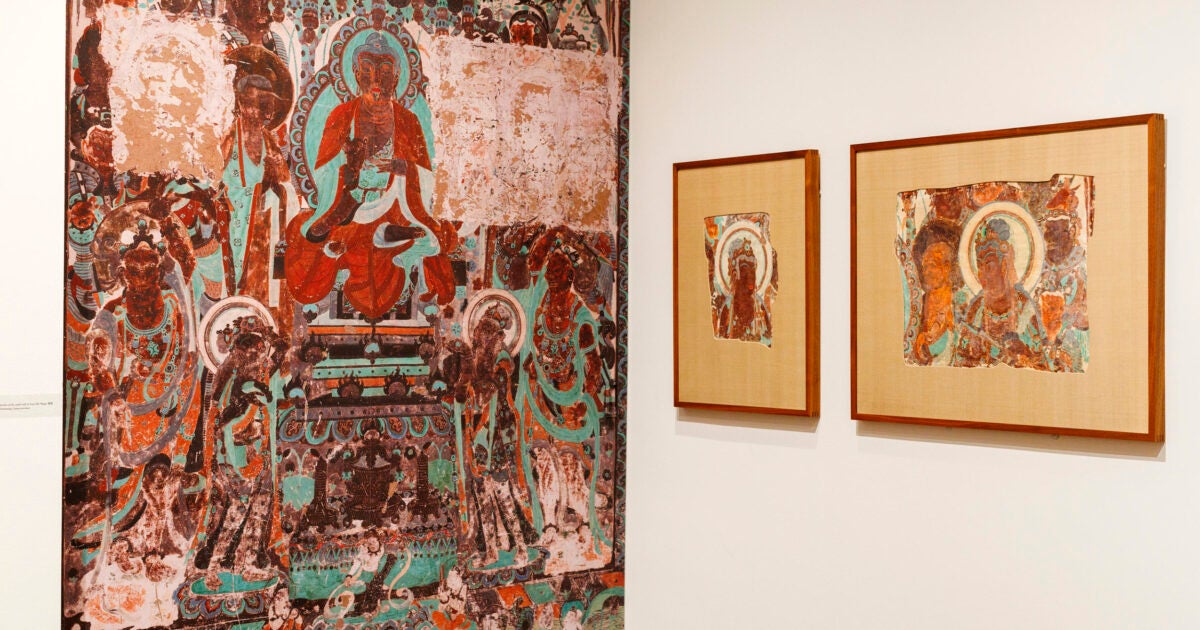For years a painting of ships passing each other in a foreign harbor hung largely unnoticed in a since-forgotten Harvard office. The work shows vessels large and small, some with vivid red flags atop their masts, all set against a blue sky. But that picturesque if unremarkable scene actually captures a snapshot of part of a dark history of addiction and imperialism, and the lasting legacy that fostering the opium trade had on Massachusetts and the nation.
That 19th century painting, “Port of Shanghai,” is now part of the Harvard Art Museums exhibition “Objects of Addiction: Opium, Empire, and the Chinese Art Trade,” on display through January. It depicts Western traders — several flying Massachusetts merchant flags — bringing illicit goods into China.
The show examines how traders seeking silks, tea, porcelain, and paintings ramped up illegal imports of opium to China in the early 19th century. The resulting widespread addiction and attempts to halt importation led to wars with European powers. All of it ended up contributing to a growing interest in the West in collecting Chinese art, some of which had been looted during armed conflict.
“I was really interested in how we can use history to understand the present,” said Sarah Laursen, the Alan J. Dworsky Associate Curator of Chinese Art. “I wanted to think about what lessons we can learn from it and how it affects our lives today, both in terms of museums and what our current collecting policies are, but also how that connects to the opioid epidemic, which has really only gotten worse over the years in spite of the efforts of a lot of politicians and public health officials.”
The opium trade in China began in the 18th century when the British East India company found that the drug, mostly produced in India, would be a competitive commodity in trade for tea. Outlawed by the Qing dynasty, opium was sold through a network of smugglers and corrupt Chinese merchants.

